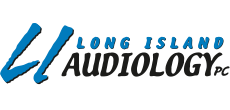Your Ears and Traveling
Passport? Check. Luggage? Check. Ear Plugs..? With spring quickly approaching, many are traveling for to warmer climates to get away from the cold, or returning home from spending their winter in the sunshine. There is a lot to remember when traveling, but something commonly forgotten is protecting their ears.
When flying in an airplane, the change in pressure can cause travelers to develop “airplane ears”, also known as barotitis media. Airplane ears can cause partial hearing loss and can be extremely painful for people to experience if not properly taken care of. Even though no serious affects usually result from airplane ears, such as hearing loss, it is still important to take care of your ears so that this discomfort and potential damage does not occur.
How to Avoid Airplane Ears:
- To help keep the Eustachian tube open, it is important to do simple techniques such as swallowing several times or blowing your nose before your plane begins to prepare for descent.
- Chewing gum is very helpful when attempting to open the Eustachian tube, so make sure to keep gum with you at all times while flying.
- Flying can be very exhausting, so it may be a natural reaction to yawn. Yawning also activates the muscles by the Eustachian tube to decrease air pressure. Even if you aren’t tired, sit by someone who is – yawns are contagious!
- Earplugs are a great way to equalize the air pressure in your ears, so make sure to purchase a pair before getting on your flight.
Our ears are very sensitive and the pressure from the airplane can greatly impact them.
If you are having trouble hearing and want to enjoy your trip by clearly hearing those around you, make sure to schedule a free consultation at Long Island Audiology, PC in Great Neck or Rockville Center today. Perhaps custom earplugs will be the perfect accessory for your next vacation.
